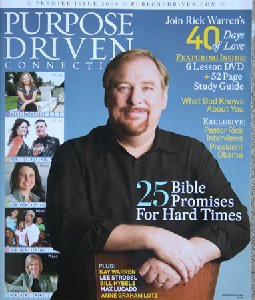Economic woes give churches a reason to go green
WASHINGTON (RNS)—Mary Miller used to have trouble getting fellow members of Wilmore United Methodist Church in Kentucky to go green. But as it turns out, a sour economy was an unlikely answer to prayer.
As the economy shrank, so did the church’s reserve fund, prompting cutbacks in salaries and staff hours. Since the start of the year, recycling bins have popped up throughout the building, paper plates have replaced plastic foam, and the secretary has started e-mailing the church newsletter instead of mailing it.
“I don’t know that we’re saving a lot of money yet,” said Miller, an environmental activist. “But at least we have interest and a little motivation to start making some changes.”
Simeon May, CEO of the National Association of Church Business Administration, said some churches that were outright opposed to going green may get there sooner than they thought.
“There has been an aversion to going green and a belief that global warming is a hoax and a myth and … trying to go green is not scriptural,” May said.
“In this economy, that doesn’t seem to hold water anymore.”
When his association polled member congregations about what they were doing to address the economy, some reported installing computer-controlled thermostats, reducing lawn watering, even reusing children’s worship bulletins.
At least one church voiced frustration with members unwilling to make such changes. “We are trying to go green, but our older members just don’t get it,” the response reads. “They want papers for everything!”
A representative of the National Council of Churches’ Eco-Justice Programs addressed the recent New Orleans meeting of the Consortium of Endowed Episcopal Parishes, which included discussions on “Environmental Stewardship Policies for Your Parish.”
“In this economy, I have noticed that most of them have some version of a green committee … at their church,” said Cynthia Cannon, executive director of the consortium based in Austin.
Although many congregations already had some environmentally friendly efforts, they increasingly are interested in how going green might help them weather a 30- to 40-percent drop in endowment values.
“Our staff has a ‘Do you need to print this?’ message on their e-mails,” said April Canik, communications director at St. Luke’s United Methodist Church in Houston.
“They redid the break room this year and installed a dishwasher and replaced the paper plates and cups with mugs and china and silverware.”
